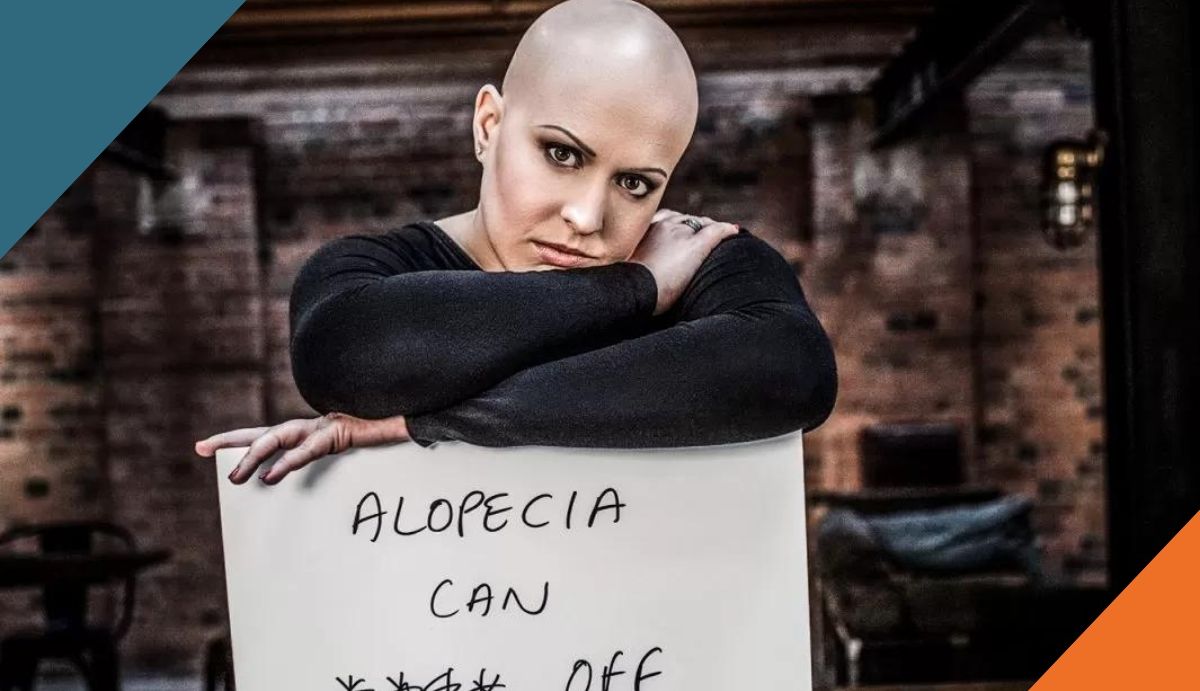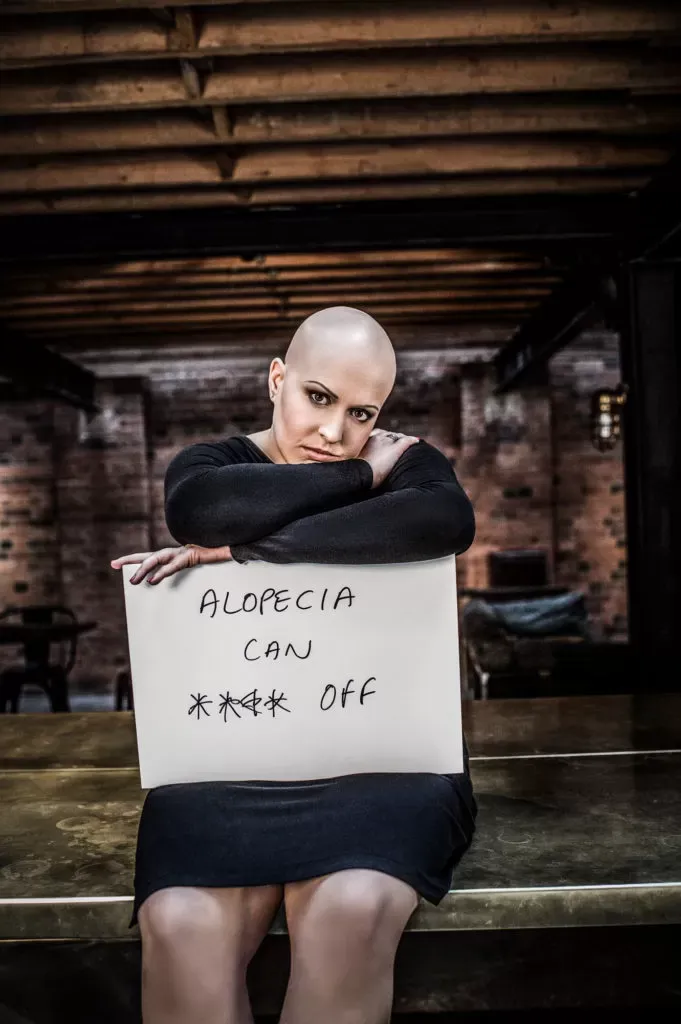
Hair loss comes in many different forms and is a hard change in your appearance for any individual.
No matter the condition a person is affected by, the effect it can have on their self-esteem is huge. While there are various hair loss diseases, there is one that frequently affects people more than any other. The most common type of hair loss is known as Alopecia.
What is Alopecia?
Alopecia is an autoimmune disease that causes the body to attack it own hair follicles. In simple terms, the condition means hair loss and can manifest itself in a range of different types. The most common types are Alopecia Areata – covering both Alopecia Totalis and Alopecia Universalis – and Androgenetic Alopecia, which is often referred to as male or female pattern baldness.
In cases of Alopecia Areata, there is usually a sudden onset and it can affect men, women and children just the same. Androgenetic Alopecia tends to be more common in men and women over a certain age, affecting 50% of men over 50 and 50% of women over 65.

What Causes Alopecia?
When it comes to Androgenetic Alopecia, there are a few factors which can lead towards the hair loss we often see.
For men, the reason for baldness is often caused by oversensitive hair follicles which can be a result of having too much of a particular male hormone. For women, the cause is less certain but the menopause has been identified as a recurring factor in those who begin to notice areas of baldness. However, as time goes on, more research is being carried out into the causes of the disease, in all of its forms.
When it comes to Alopecia Areata, this is down to an issue within the body’s immune system and is more common when people suffer from autoimmune conditions including diabetes, Down’s Syndrome or an overactive thyroid. Despite these other factors, Alopecia Areata can develop at any age and generally tends to affect two people in every 1,000 in the United Kingdom.
Symptoms of Alopecia
The most prominent symptom of alopecia is patchy hair loss. Sufferers find coin-sized patches of hair falling out, predominantly from the scalp. Any other part of the body where hair grows can be affected including your beard and eyelashes.
Hair loss can happen suddenly, developing in days or over a period of weeks. People have been known to suffer itching or burning in the area before hair loss occurs. Hair follicles aren’t completely destroyed and can re-grow if the inflammation subsides. Often, people with a few patches of hair loss have a spontaneous, full recovery without the need for treatment.
In regards to alopecia areata, some individuals find that their condition becomes more extensive or is the beginning of a continuous cycle of hair loss and regrowth.
Patients do recover from alopecia areata within a year, but many experience more than one episode. There’s a possibility that some go on to develop alopecia totalis or universalis.
Treatments for Alopecia
There are various treatments available for men, women and children with all types of alopecia.
Hair Systems
In terms of treatments available to mask hair loss, the range of options is one which continues to grow thanks to develop and innovation in the field. At Optima Hair, we specialise in alopecia treatment and the creation of stunning hair systems for sufferers, allowing them to claim back their confidence and sense of pride in their appearance.
Our team of experts work to create outstanding hair systems for women and for men which are fully customisable in order to provide perfect end results for all. We also provide the essential after care for all our clients, meaning your journey from start to finish is comfortable and completely unique to you.
Scalp MicroPigmentation
Also known as a scalp tattoo or head tattoo, scalp micropigmentation is a male hair loss solution that replicates the “shaved head” look, camouflaging the area where hair loss has occurred.
Laser Hair Therapy
In the cases where hair growth is still possible, laser therapy is a treatment option available. Laser therapy increases blood flow to the scalp to help maintain hair follicles. The laser programme works alongside Minoxidil formula – clinically proven in promoting hair growth. Trichology shampoos also work in conjunction with laser therapy to help encourage growth.
How to Cope With Hair Loss?
For anyone, noticing that they are losing hair, coming to terms with this is a huge hurdle, both emotionally and physically. An individual’s self esteem and confidence can be significantly impacted in a negative way, leaving them feeling inferior to their former self. This being the case, seeking and making the most of emotional support makes for great foundations on which to cope with Alopecia and seek treatment.
Charities such as Alopecia UK provide outstanding emotional support groups for sufferers, allowing them to talk to fellow individuals with Alopecia, and without.
If you’re suffering from Alopecia and want to make your first steps in getting back to the best version of you, why not contact a member of our expert team or book a free consultation today! We can guide you through an informed and relaxed process, making sure your best interests are put first.
